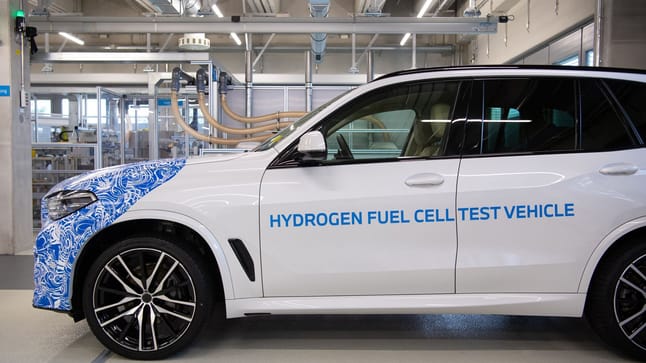BMW has announced plans to begin series production of a hydrogen fuel cell vehicle in 2028. This move marks a significant step in the company’s diversification of drivetrain technologies.

BMW partners with Toyota for hydrogen technology
BMW and Toyota have agreed to jointly develop the next generation of fuel cell technology. The collaboration aims to achieve high production volumes and reduce costs through joint purchasing and development efforts. BMW CEO Oliver Zipse believes this venture “will usher in an era with significant demand for fuel cell electric vehicles.” Toyota President Koji Sato described it as a new stage in the long-standing cooperation between the two companies “with the aim of building a hydrogen society.”
In light of increasing scarcity of battery raw materials and inadequate electric charging networks, Zipse sees hydrogen-powered electric vehicles as a perfect complement to battery-electric cars. The two-year trial of a small series of the hydrogen BMW iX5 Hydrogen with customers in Asia, America, and Europe has demonstrated that the technology is robust, ready for deployment, and suitable for series production, according to project manager Michael Rath.
Hydrogen infrastructure and market considerations
While other manufacturers like Toyota, Honda, and Hyundai already have fuel cell vehicles in series production, the hydrogen refueling infrastructure varies globally. Germany has few hydrogen filling stations, but networks are more developed in China, South Korea, Japan, and California. A comprehensive network for trucks is also being built.
BMW has not yet announced which plant will produce its hydrogen car in series. Factors influencing this decision include electric charging networks, hydrogen infrastructure, and BMW’s sales figures in different regions.
Customer preferences and technological advantages
Customer preferences vary worldwide. A fuel cell electric vehicle (FCEV) running on green hydrogen is just as emission-free as a battery-electric vehicle. However, Rath emphasizes that FCEVs can travel long distances even in extreme heat or cold without lengthy charging breaks. Refueling takes only three minutes.
While BMW hasn’t specified which model will be offered as a hydrogen car, the advantages are more pronounced in large, heavy vehicles. Production costs remain high due to small production volumes and the expensive platinum used in fuel cells.
Toyota’s expertise and future outlook
BMW will purchase fuel cells for its hydrogen car from Toyota, while supplying components to the Japanese manufacturer in return. Toyota is considered a global leader in fuel cell technology and has long been on the market with its premium Mirai sedan. China is also pursuing a combination of battery electric vehicles (BEV), plug-in hybrids (PHEV), and fuel cell electric vehicles (FCEV).
Hydrogen is easy to transport and is considered a good electricity storage solution for surplus wind and solar energy. While using electricity directly is more efficient than via hydrogen, Rath points out that “even less efficient is shutting down wind turbines and solar plants when their electricity is not needed.”









